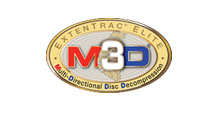
Spine Disorders
|
WHEN TO SEE A SPINE
SPECIALIST You should
seek the advice of a spine specialist if neck or back pain persists for more
than two weeks or if it is progressive in intensity and/or distribution. You
should seek immediate healthcare attention if neck or back pain occurs as the
result of an injury or if it is associated with serious illness and/or a high
fever. Additional signs and symptoms which warrant prompt medical attention
include:
SCREENING AND DIAGNOSIS Diagnostic
tests aren't usually necessary to confirm the cause of your back pain. However,
if you do see your doctor for back pain, he or she will examine your back and
assess your ability to sit, stand, walk and lift your legs. He or she may also
test your reflexes with a rubber reflex- hammer. These assessments help
determine where the pain is, what degree of motion you have without pain and
whether you have muscle spasms. They will also help rule out more serious
causes of back pain. If
there is reason to suspect that you have a tumor, fracture, infection or other
condition that may be causing your back pain, your doctor may order one or more
tests:
|
















